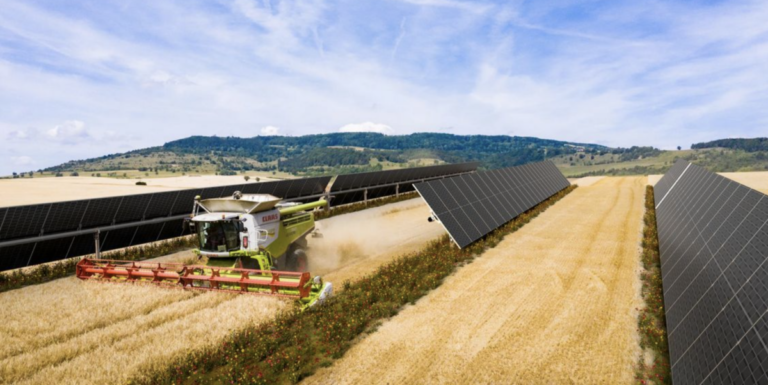Baywa re has commissioned a 54 MW agrivoltaic solar project in Spain. Denmark-based Velux has agreed to purchase most of its annual production of 96.8 GWh under a long-term power purchase agreement (PPA).
Germany’s Baywa re has commissioned a 54 MW agrivoltaic solar park in Alhendín, Andalusia, southern Spain.
The company said about 10% of the factory area will be devoted to agricultural activities. The distance between the rows of solar panels is large enough to ensure that agricultural machines such as combine harvesters can drive through them.
By spring 2025, Baywa re will implement a biodiversity concept developed by the Universidad de Córdoba and the Universidad Autónoma de Madrid across the site. It will provide shelter for wildflower species, wildlife refuges, amphibian ponds, bird baths, nest boxes and breeding grounds to protect endangered lesser kestrels.
The company and the two universities will continuously monitor and evaluate the performance of the agrivoltaic plant, while implementing a range of biodiversity concepts. Baywa said it also wants to hold workshops with local interest groups at the solar park and facilitate school visits.
Baywa said it expects an annual output of 96.8 GWh from the solar project. Danish window manufacturer Velux will purchase most of the electricity generated by the solar power plant under a long-term PPA.
The contract also includes the supply of electricity from a second solar park that the Munich-based company is currently building near Seville. This power plant has a capacity of 60 MW and I expected it to be put into operation during the course of next year. However, official approval is still pending.
“The completion of the Alhendín solar park and its connection to the Spanish electricity grid will enable Velux to achieve its green energy supply objectives,” said Kim Jonas, Velux energy and climate director. “The project, which focuses on agricultural use and biodiversity, fits perfectly with our intention to promote climate protection and the improvement of biological diversity.”
This content is copyrighted and may not be reused. If you would like to collaborate with us and reuse some of our content, please contact: editors@pv-magazine.com.


